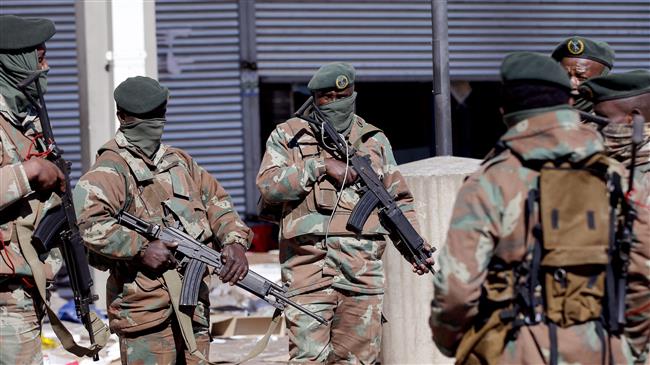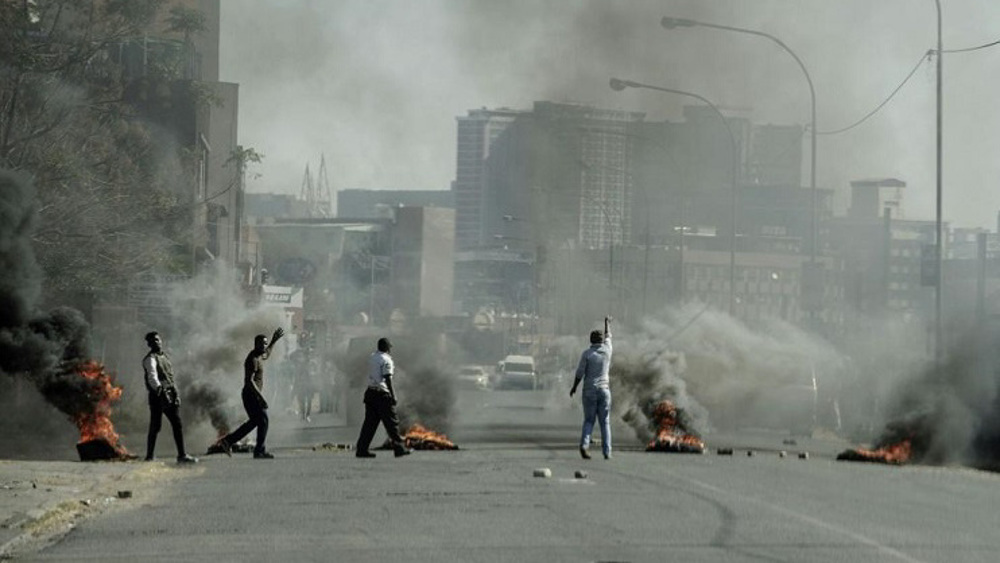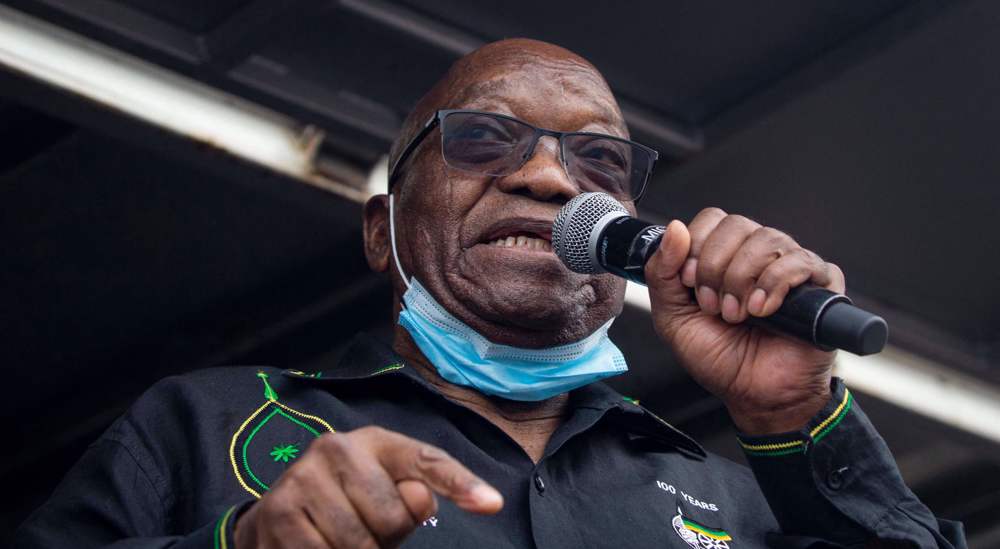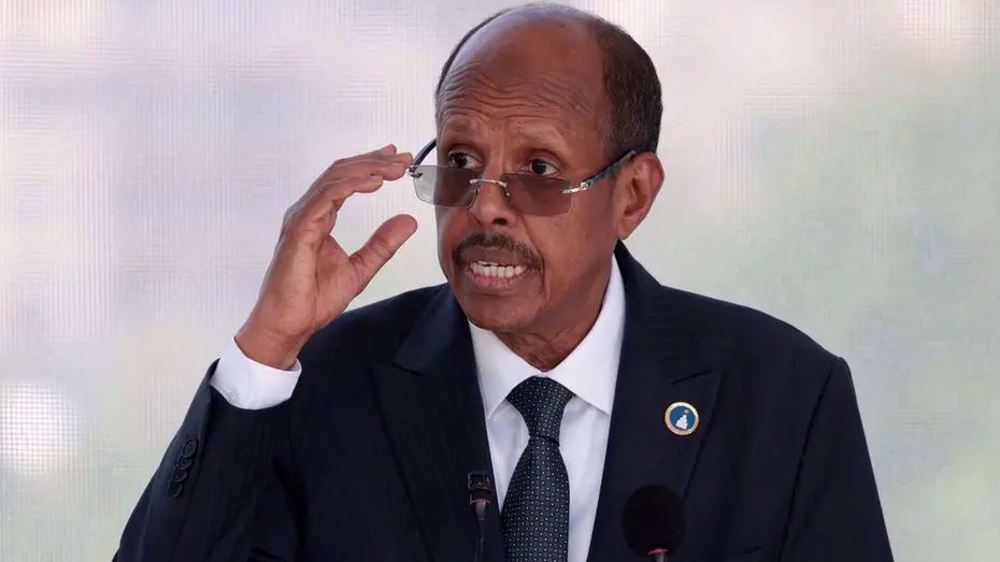Violence intensifies in South Africa amid grievances over Zuma’s jailing
The unrest triggered by the jailing of South Africa’s former President Jacob Zuma has intensified across the country, with dozens of people reported killed during the violence.
Media reports said protesters clashed with security forces in several major cities in South Africa on Tuesday and a number of shopping malls were ransacked as grievances over Zuma’s arrest last week turned into the worst violence in years.
Security officials said the government was working to stem the violence and looting, which have over the past days spread from Zuma’s residence in KwaZulu-Natal Province to Gauteng Province and the country’s biggest city and economic capital, Johanesburg.
South African police increased the number of forces deployed to the streets to contain the unrest but stopped short of declaring a state of emergency.
Authorities in Gauteng said on Tuesday that ten bodies had been found at a looted shopping center near Johannesburg. They had been killed in a stampede.
Hundreds of protesters raided warehouses and supermarkets in Durban — one of the busiest shipping terminals on the African continent and a major import-export hub — and hurled stones at police, who responded with rubber bullets.
According to state and provincial authorities, at least 45 people have been killed so far during the unrest, 19 in Gauteng and 26 in KwaZulu-Natal.
Speaking at a news conference, Police Minister Bheki Cele said 757 people had been arrested and that the government would act to prevent the violence from spreading further.
South African President Cyril Ramaphosa announced late on Monday that he was dispatching troops to help police halt the unrest and “restore order.”
“It is of vital importance that we restore calm and stability to all parts of the country without delay,” Ramaphosa said, adding, “The path of violence, of looting and anarchy, leads only to more violence and devastation.”
The unrest was sparked by the jailing of Zuma, but the situation has evolved into an outpouring of anger over persistent poverty and inequality in South Africa 27 years after the end of apartheid, with the economic effects of restrictions imposed over the coronavirus pandemic having exacerbated the situation.
On June 29, Zuma was sentenced to 15 months in jail for not appearing before a commission looking into graft scandals during his presidency.
The violence worsened after Zuma started serving the jail term on Thursday after handing himself in to authorities as a deadline for surrender loomed.
South Africa’s Constitutional Court was on Monday asked by Zuma’s lawyers to review its decision on jailing the 79-year-old former president for contempt of court. The court has reserved its judgment for a later but unspecified date.
Zuma was removed from office by his ruling African National Congress (ANC) in February 2018, in a move orchestrated by the allies of his successor, Ramaphosa.
He was forced to resign when ANC lawmakers turned against him over accusations of having links to the wealthy India-born Gupta family, who are alleged to have influenced his government. Zuma and the Guptas, however, deny the allegations.
Zuma is a former anti-apartheid activist who spent 10 years in the notorious Robben Island jail off Cape Town. The former president is popular among many poor South Africans, especially the grassroots members of the ANC, who see him as a defender of the disadvantaged.
Six top Trump administration officials appear in Epstein files
VIDEO | Press TV's news headlines
Gaza Nasser Hospital slams MSF’s ‘unsubstantiated’ claims as medical work suspended
Jordan condemns Israeli incursions at Al-Aqsa Mosque as 'flagrant violation'
Ex-Ukrainian energy minister arrested amid corruption probe while trying to flee
VIDEO | Israel using militias to deepen chaos in Gaza
Putin’s aide praises Iran’s ‘competitive’ technological achievements
VIDEO | Brussels exhibition exposes Western-backed genocide in Gaza












 This makes it easy to access the Press TV website
This makes it easy to access the Press TV website